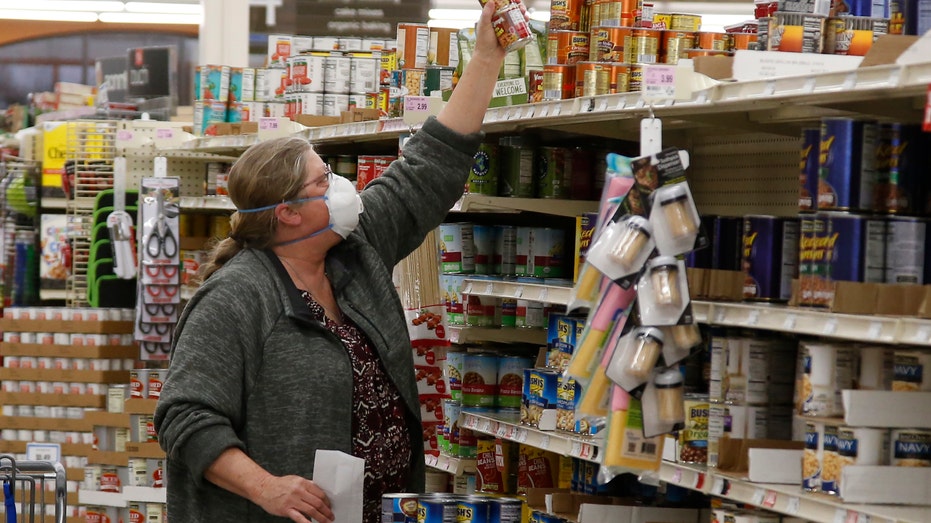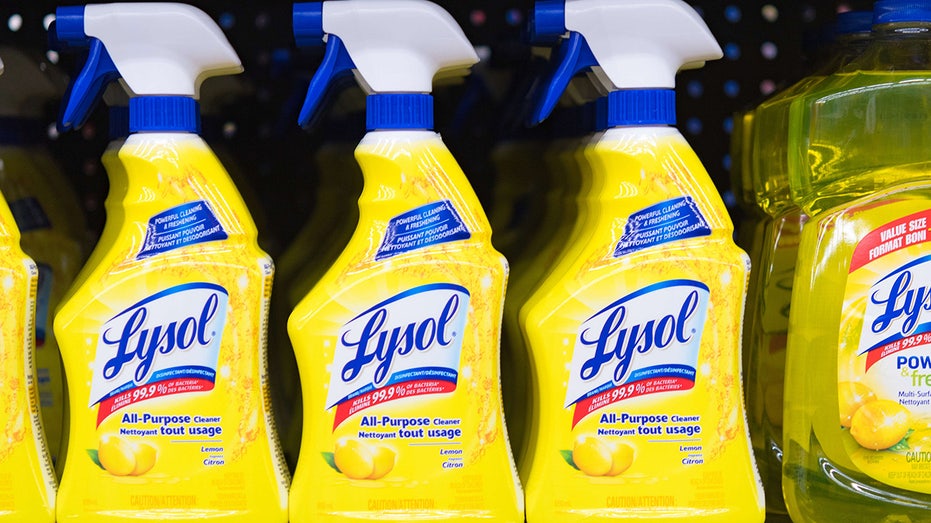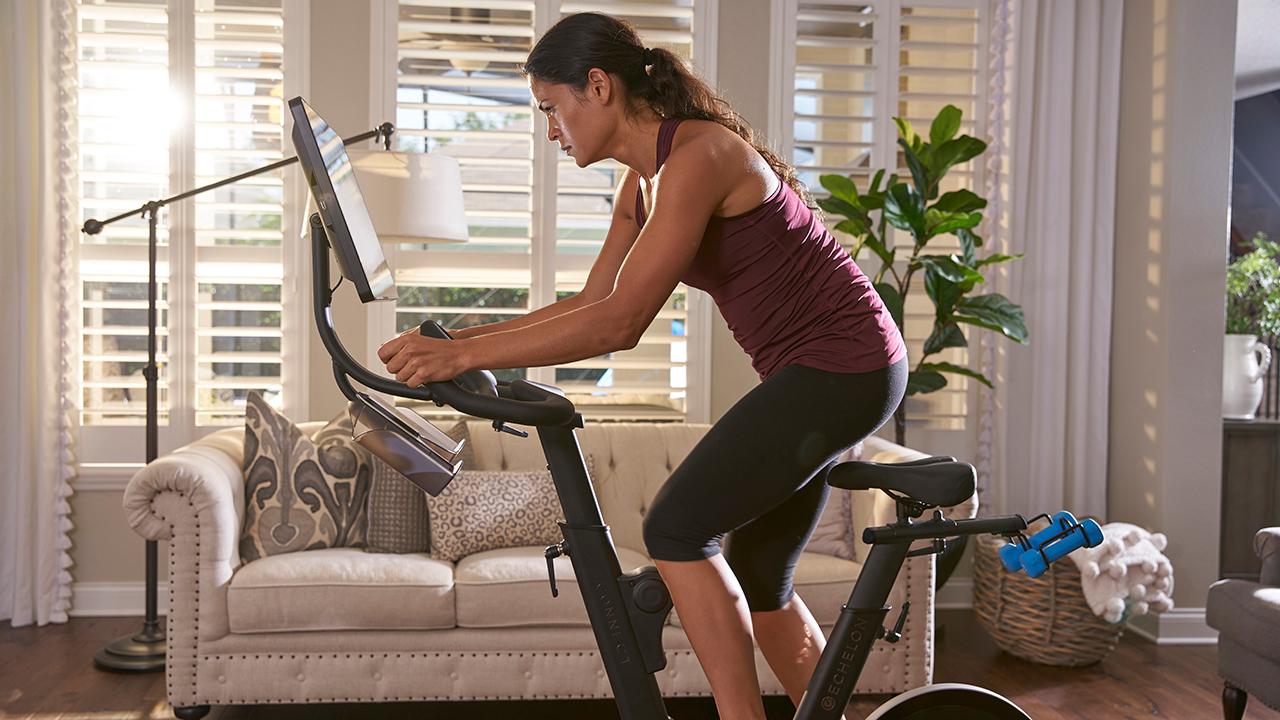Preparing for coronavirus shelter-in-place orders: What you need to know
Have what you need to be comfortable, expert says
Get all the latest news on coronavirus and more delivered daily to your inbox. Sign up here.
As an increasing number of state and local governments have told residents to shelter in place because of the coronavirus pandemic, so Americans are gathering supplies to stay at home for an undefined period of time.
But Boris Chernin, of emergency preparedness firm B-Ready, told FOX Business that people should have more on their minds than stocking up on snacks.
CORONAVIRUS IMPACT: STATE-BY-STATE RESTRICTIONS
"There's nothing to say another disaster won’t happen while this pandemic is raging. ... You are your own first responder," Chernin said.
For example, a 5.7 magnitude earthquake hit Salt Lake City last week, closing its airport and cutting off electricity.

Stacey Mason wears a mask as she shops during senior shopping hours at Homeland in Oklahoma City, Tuesday, March 24, 2020. (AP Photo/Sue Ogrocki)
"Have what you need to make yourself comfortable, take care of your family and feed yourself," Chernin said. "Replenish when you have to and be super, super careful."
Here are some resources to help those told to stay at home as much as possible:
1. Practice food safety
Practicing caution when shopping for and preparing food can keep your family safe. There is no current evidence that shows the virus can be transferred through food or food packaging, according to research from the U.S. Department of Agriculture. So, there are no restrictions on what kind of food you can buy, and whether it is imported, perishable or packaged.
When shopping for food, the Center for Strategic & International Studies advises people to go into stores at off-peak hours and wipe down carts before and after use. It also recommends social distancing, by keeping at least six feet away from others, while shopping. For transactions, the CSIS suggests using debit or credit cards to avoid hand-to-hand cash transfers if they can help it.

The checkout queue inside Wal-Mart in New Port Richey. (Photo by: Jeffrey Greenberg/Universal Images Group via Getty Images)
In addition, coronavirus is trapping many volunteers at home, putting a strain on organizations that provide emergency resources like food banks. However, many are adding mobile or drive-through options wherever possible and are even considering teaming up with the National Guard to pack and deliver food to those who can’t leave their homes.
CORONAVIRUS PROMPTS SHOPPERS TO STOCK UP ON SPAM, CANNED MEAT
2. Cut through misinformation
Misinformation about the pandemic abounds, and the CDC recommends connecting with primary sources to stay up-to-date.
"Stay in tune with your local, state and national governments. I recommend following them on Twitter," Chernin said. "I live in Los Angeles, so I follow the mayor and the governor to see what the offices of emergency management are doing."
There are many free online resources out there, including newsletters providing the latest updates and an interactive map of global cases compiled by Johns Hopkins University.
THE DOS AND DON'TS OF CORONAVIRUS STOCKPILING
3. Take disinfecting seriously
The Centers for Disease Control and Prevention recommends using diluted bleach or alcohol solutions with at least 70 percent alcohol to disinfect frequently touched surfaces. Those items include tables, doorknobs, light switches, handles, desks, toilets, faucets and sinks.

TORONTO, ONTARIO, CANADA - 2017/09/15: Lysol bottles on a store shelf, plastic spray bottles of all-purpose cleaner. The product is distributed by Reckitt Benckiser. (Photo by Roberto Machado Noa/LightRocket via Getty Images)
CLICK HERE TO READ MORE ON FOX BUSINESS
4. You don't need to boil water
Some states have banned water shutoffs because of the public health crisis, and companies like San Jose Water in California are reminding customers that their water is safe to drink and treated so that it won't be contaminated with the virus.
The EPA wants Americans to know they can "use and drink water from their tap as usual" and is not advising they store or boil drinking water.
"Homeowners with private wells who are concerned about pathogens such as viruses in drinking water may consider approaches that remove bacteria, viruses and other pathogens, including certified home treatment devices," according to the EPA's website.
5. Make an emergency plan
It takes time and effort, but the pandemic is a reminder that families should craft their own emergency plans if they have not done so already, Chernin said.

Director of the National Institute of Allergy and Infectious Diseases at the National Institutes of Health Anthony Fauci, center, with Vice President Mike Pence and White House coronavirus response coordinator Dr. Deborah Birx, speaks to reporters du
"If you're a family or an individual with people you care about in other areas, you need to have a communication plan," he said. "What if there's an earthquake? Who's going to go get the kids at school? What if phone lines go down?"
Getting started on this can be as simple as a Google search about making an emergency plan, he said.




















